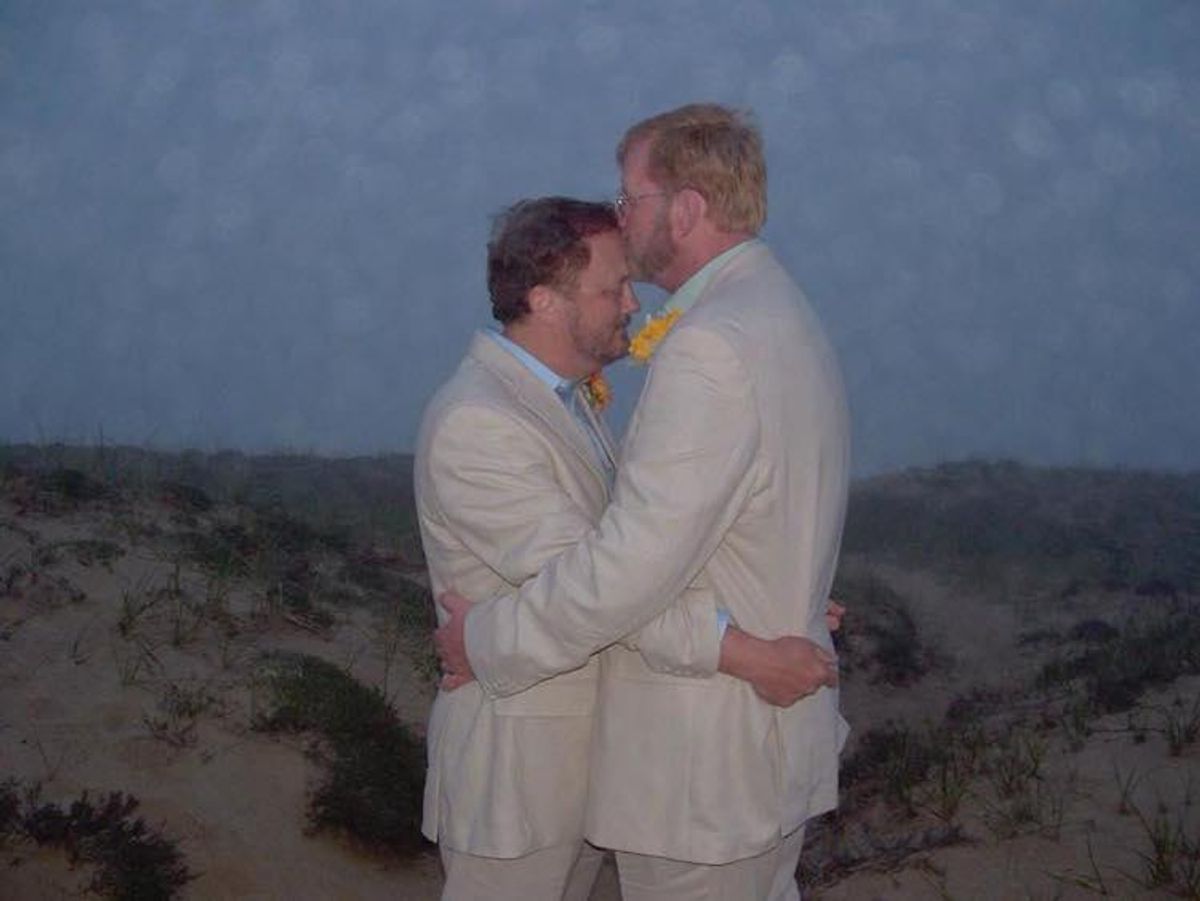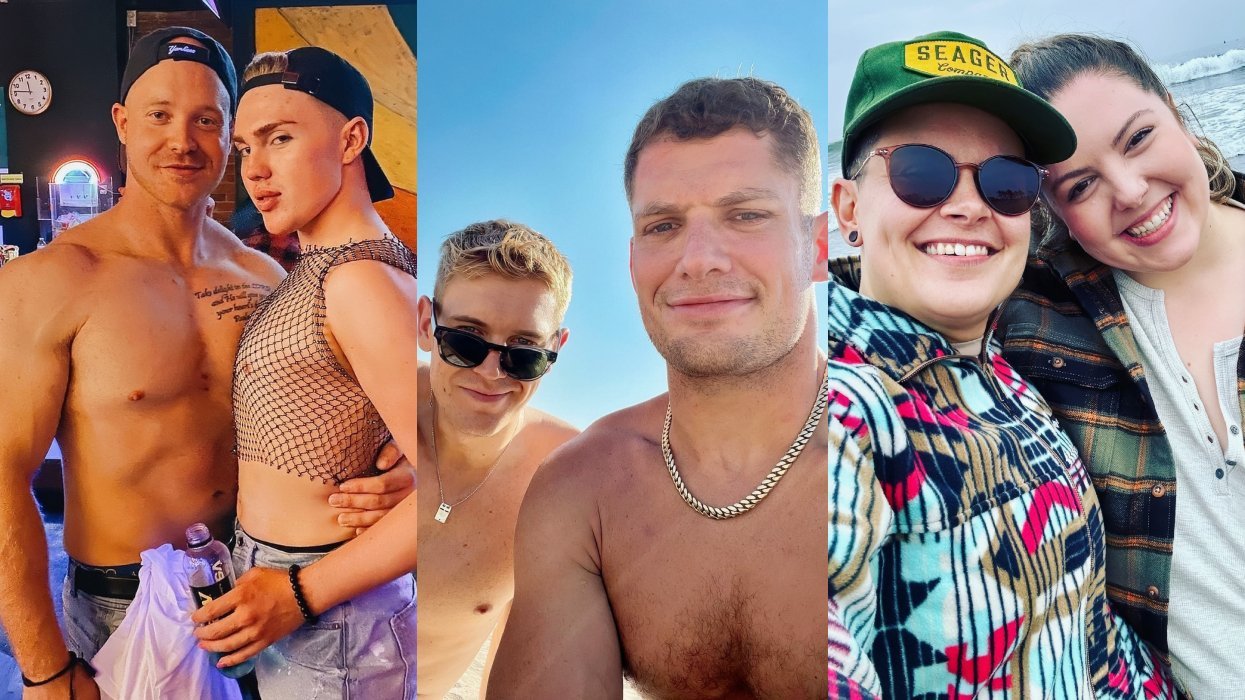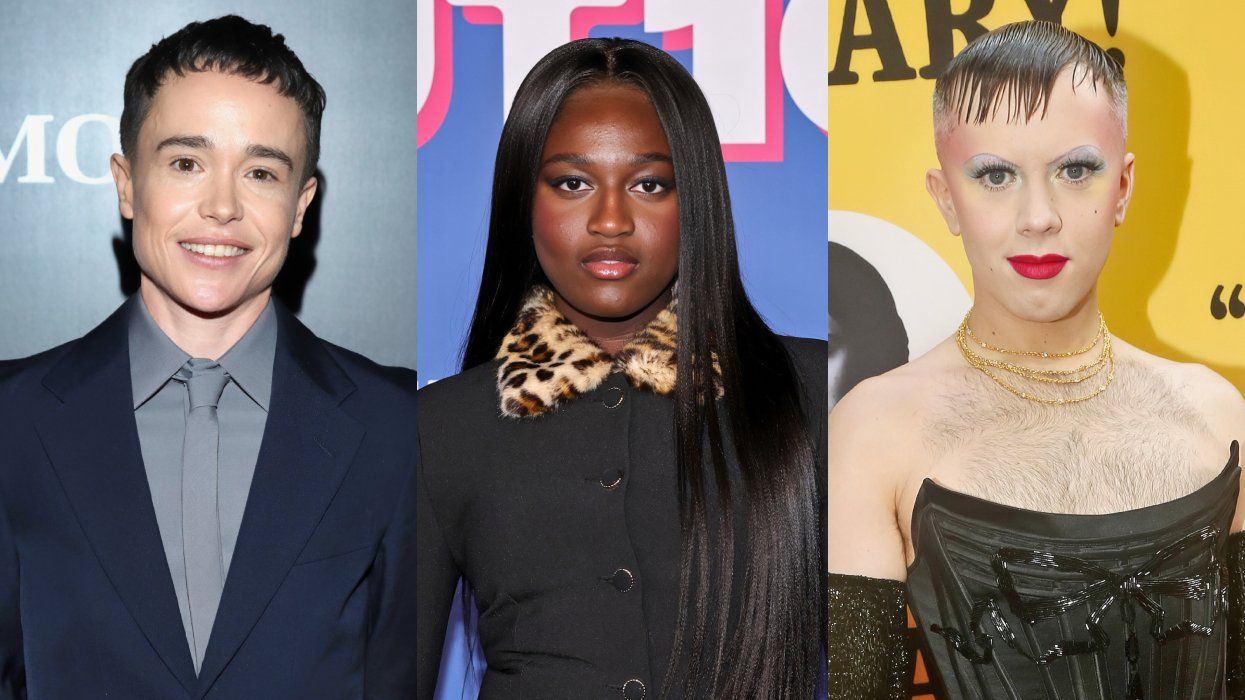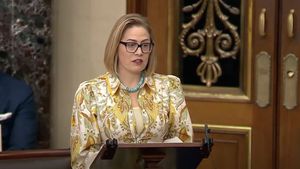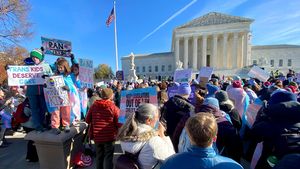Five years ago, Paul Hard paced the halls of an emergency room in Prattville, Alabama. His husband, David Fancher, had been grievously injured in a car crash.
The receptionist refused to tell him where his husband was--if his husband was even still alive. Alabama didn't recognize his three-month marriage performed in the spring in Massachusetts. No one would help him.
A half-hour of searching later, a passing orderly told him what happened to David.
"Well, he's dead," the orderly said.
Despite the years, Aug. 1 is still a hard day for Hard. "Today is always rough," he tells Out, "but I like to think that folks remember him."
Since that awful night in 2011, Hard has become something like Alabama's Obergefell. His grief only started with his husband's death. The pain would prolong through years of lawsuits pitting him against both his husband's family and the most powerful conservative forces in the state.
First, he had to fight to be listed as the spouse of his husband's death certificate. Then, after David's crash was ruled a wrongful death, the man's estate moved into state control--despite the will David had left.
In wrongful death, the estate must be split between the surviving spouse and the next-of-kin. Hard prepared to split the settlement with his mother-in-law. But David's mother and the Foundation for Moral Law claimed the whole estate and settlement because Alabama didn't recognize Hard as a spouse. Hard and the Southern Poverty Law Center sued and won.
"The foundation has been fighting me since day one," he said. "When we won the first time, we toasted with sweet tea, if you can believe it. I suppose that's the most Southern thing you can do. We were surprised we hadn't heard anything--an outraged editorial, something. Then, within the hour, they filed the first appeal."
The case slogged through appeals into this year, when the Eleventh Circuit Court of Appeals refused to hear the case. While going to the Supreme Court seems unlikely, Hard would not be surprised.
"These people are ideologues," he says. "Even though it's futile, they always file an appeal--every time. It's just a question of how much more time can they waste and how much more energy they can expend on something that's open and shut."
The Foundation for Moral Law was founded by Alabama Supreme Court Justice Roy Moore, who could be ousted from office for the second time over his refusal to obey federal law, specifically on marriage equality. His wife, Kayla Moore, is listed as the president.
"These people--they're not going anywhere," Hard says. "My friends like to say, 'you've got marriage equality now, so the fight's over.' They don't get it. Marriage equality was not the complete victory people seem to think it is--especially down here."
As Hard faced appeal after appeal, he became more active in the statewide LGBT rights movement, gathering information on cases and marriages similar to his.
"Let's say you go to Coosa County," he says. "If you're a gay couple wanting to get married, the clerk's office suddenly starts having 'computer problem.' Or if you complain about the license still saying 'bride,' 'groom,' or 'holy matrimony,' they'll fix it--by using Wite-Out on those words. Or just leaving it blank--a certificate with a big blank space where 'marriage' used to be."
Hard watched this past year as state legislators proposed bill after bill that would have only worsened the state's reaction to marriage equality beyond the indignities he experienced.
"Our legislators just want to create an administrative mess," he said. "We're diving into semantics about what a marriage license is, what a marriage contract is. All so probate judges and clerks can have their little personal victories. They're still trying to push us into this separate but equal form of marriage. And that's not done too well in this state, if you remember."
A professor at Auburn University in Montgomery, Hard believes the next generation of young Southerners shows tremendous promise. In the years since David's death, his grief has turned into a passion for change, and while he likes to keep his personal life out of his classroom, it's the students themselves who bring it up.
When a class independently picked marriage equality as a debate topic for a lesson on critical thinking, he let the students debate among themselves--and then slipped a wedding picture of him and David into the slideshow.
The room went silent. A young woman in the back, who had argued against marriage equality, began to apologize.
"Don't apologize," he remembers telling the student. "I asked your opinion, and I'm not going to punish you for that. Just know--when you express that opinion, you may be hurting family members, friends, and people you don't even know."
Hard sees what may be the best possible solution for conservatives and LGBTs in the South--an understanding, sympathetic tolerance.
"They just need a human face," he says. "The people against me and David, when you really think about it, they wouldn't have stood in front of me at the ER. They wouldn't have insisted my name taken off the death certificate. We are coming to place in the South where people tell me, years after, 'Look, I don't agree with this--but none of that should have ever happened to you.'"
